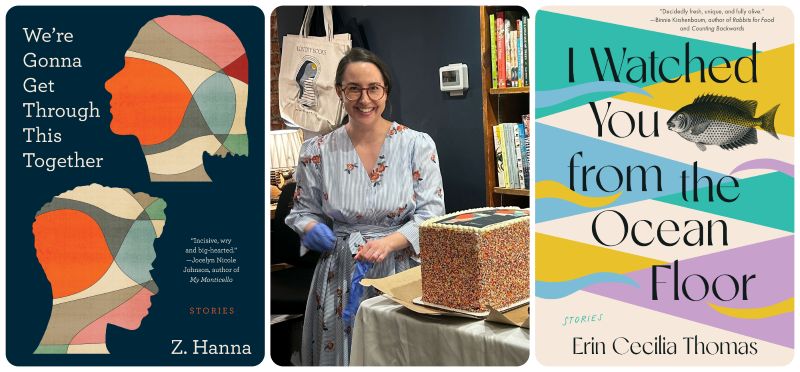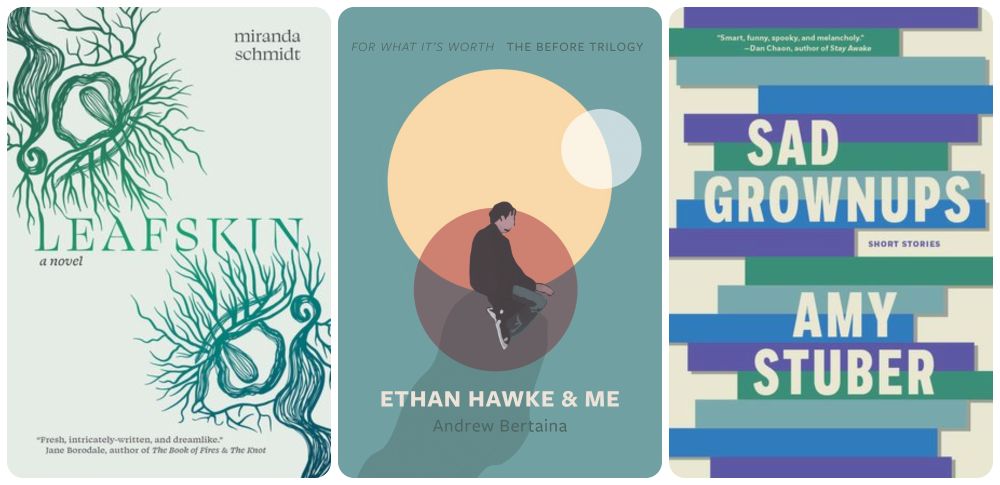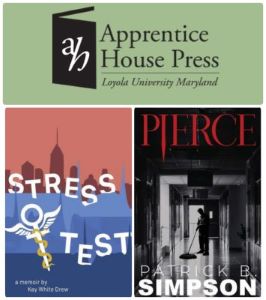Modern Artist Press seeks provocative, unforgettable works.

This spring, I’m moderating a panel at the Washington Writers Conference (May 2-3). “What Do (Local) Editors Want? Maybe Just What You’re Writing” will feature several of the movers and shakers in the DC-area independent-publishing scene — some of whom I’ve interviewed for this column, including Stirred Stories and SFWP — along with JackLeg Press and the brand-new Modern Artist Press.
This is going to be a jam-packed panel focused on how to get published with an indie press. As a writer soon to be published by one (The Other Beautiful People, Regal House Publishing, June 2026); co-president of a DC-based nonprofit literary press (Washington Writers’ Publishing House); and the author of two books (Before My Eyes and LIE) from a traditional, “Big Five” publisher (St. Martin’s Press), my experience runs the gamut, and I’m going to cut through to the key questions about getting your manuscript published locally and learning what it takes to reach a national readership.
As a preview, I reached out to Kathryn Fay, the founder/publisher of Modern Artist, to find out why launching her own press was a good idea and what she’s looking for.
As a new press based in Falls Church, Virginia, just outside of Washington, DC, does the current conservative political climate impact how you’re thinking of things?
The DMV has an amazing reading and writing scene, and now, as book bans are increasing and federal guidelines are prescribing the kind of art that will be funded, it feels especially important to continue showing up for the book community. This has included reading BIPOC, LGBTQ+, and small-press books, attending author events at indie bookstores and libraries, and calling my representatives, among other activities.
I have also been thinking about how I can better support my writers — the ones I am currently publishing, as well as those who are working on their manuscripts and who I hope to publish in the future. Modern Artist Press looks to expand and explode the definition of a modern artist by publishing literary fiction, and I remain committed to promoting new literary voices and amplifying the work of writers and artists with marginalized identities. Their stories should be told, and I believe readers are still hungry for them.
Your first two books are short-story collections: We’re Gonna Get Through This Together by Z. Hanna and I Watched You from the Ocean Floor by Erin Cecilia Thomas. What drew you to launch with story collections? Will you be looking for full-length works, novellas, or poetry, too? And what’s your top advice to writers interested in submitting?
The press may expand into creative nonfiction, poetry, and other genres in the next few years, but for now, I am focused on publishing literary fiction in its many forms: novels, short-story collections, and hybrid, genre-defying work.
Perhaps my top advice to writers is twofold: First, focus on your writing and getting your manuscript into the best shape it can possibly be, even if it takes longer than you hoped and expected. Second, once you have completed your manuscript, you will want to figure out what your publication goals are and what you are looking for from your publisher. This also takes time and research, but it will help you find your people and the press who will bring your book into the world and support your writing career for the long term. (If that is me and Modern Artist Press, I look forward to reading your submission!)
In addition to the Washington Writers Conference in May, do you also plan to be at AWP in Los Angeles later this month?
I will be at AWP this year! I will moderate a fiction craft panel with Kristen Arnett, Z. Hanna, and Alana Saab. The panel is called “From Satire to Dad Jokes: How Humor Can Be Literary, Political & Funny” and will be held on Thursday, March 27th, from 1:45-3 p.m. (PDT). I invite interested attendees to join us as I ask these fiction writers how they incorporate humor into their most recent novels and short stories. As for the value of attending AWP: Whenever I have attended, I have always returned home with new connections, pages and pages of notes, and a TBR that has grown exponentially.
To dig into the launch of your press, I’d love to hear more details: Is Modern Artist aiming to be a traditional literary press?
Modern Artist Press is built on a traditional model, but like many indie presses, the processes are very collaborative. I look to publish two to three books a year, which enables me to work directly with my authors on edits, cover design, and marketing plans. I accept submissions from both writers and agents and offer a combination of an advance, author copies, and royalties.
It’s wonderful that you’re currently open to submissions. How does your experience as a writer and editor influence how you want to work with writers?
I’ve been writing, editing, and publishing in various capacities (academic, museum, business development, etc.) for over 15 years. For one project, I worked closely with a writer as she was finishing the final chapters of her manuscript. I edited her manuscript, obtained image permissions, researched potential book-tour locations, and coordinated deadlines with the production team. I also remember taping images of comparable books up on the conference room wall and creating mock-up cover designs. I was brought onto the project after the publishing agreement was signed, and I was in no way the publisher, but I would say that this experience — with its close collaboration across many aspects of book production — definitely shaped the ways I work with writers as a publisher.
*****
In reading the title story from Modern Artist’s first publication, Z. Hanna’s We’re Gonna Get Through This Together (published on March 4th), I was struck by the vivid intensity of the protagonist, Kara, who runs Whiteness and Antiracism Coaching and Consulting. Hanna, a Washington, DC, native, captures the earnestness of DC-area clients ranging from a seemingly progressive U.S. senator to a tightly wound Bethesda mother seeking to be “coached” on how to navigate intersectionality. Both are trying to assuage their “white guilt low points,” though Kara quickly learns there’s more at stake. The language is crisp, the story craft sharp, and the tone biting satire that touches on a true nerve. Eleven additional stories round out this debut, but I can see how the black humor of the titular one must’ve drawn Fay to Hanna’s work.
Modern Artist’s second collection is I Watched You from the Ocean Floor by Erin Cecilia Thomas, and here again, I couldn’t help but read the title piece. It’s an evocative story about three 20-somethings working at a high-end grocery store. Their object of obsession is the co-worker the protagonist calls Foxglove “because everything about her — her lips, her eyes, the soft, thick curls of her hair — pouted, droopy and elegant. Her skin was pale and powdery with a slight lilac tint. She floated through the aisles of the upscale organic grocery store we worked for, her hands motioning to products on the shelves as though she were casting spells.”
And so, a spell is cast in this dreamy tale with an ironic, wistful twist. This debut collection, which features 10 additional stories, comes out in July.
So, I hope to see some of you at the Washington Writers Conference in May. There will be loads of literary agents and authors on hand, and — on my panel — local publishers, too!
Caroline Bock writes stories — from micros to novels. She is the author of the novel The Other Beautiful People, forthcoming from Regal House Publishing in summer 2026. A graduate of Syracuse University, she studied creative writing with Raymond Carver and poetry with Jack Gilbert and Tess Gallagher. In 2011, after a 20-year career as a cable television executive, she earned an MFA in fiction from the City College of New York. She has short fiction forthcoming in the Hopkins Review. She is the co-president and prose editor at the Washington Writers’ Publishing House. She lives in Maryland with her family.

